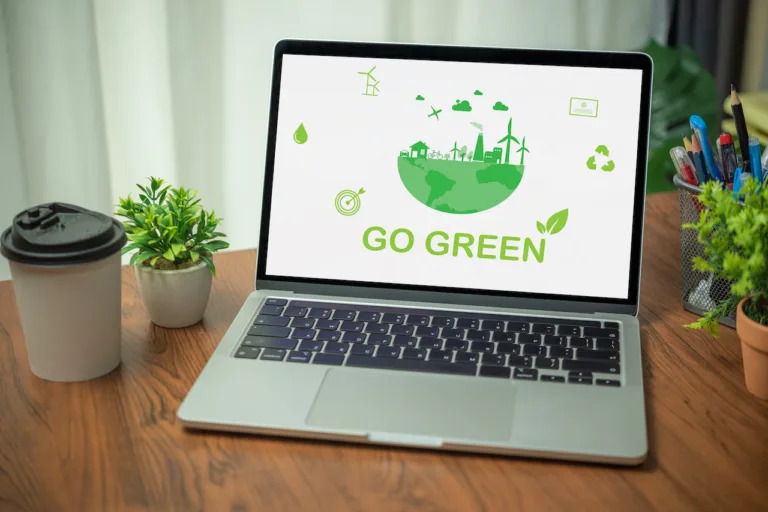
Within the past ten years, energy suppliers have been faced with the challenge of confronting “Corporate sustainability,” The act of making a brand more environmentally friendly. It has not only become a popular topic, but has also become a criterion many customers use to judge which natural gas or electric supplier to enroll with.
With the release of ESG scores[1] (Environmental, Social, and Corporate Governance) being tracked and reported online, suppliers have had to rethink their environmental impact, as well as their branding and advertising. According to The Harvard Forum on Corporate Governance,[2] mandatory sustainability reporting is expected to increase significantly worldwide this year and in the years to come. With these new laws, energy suppliers are faced with challenges in their marketing and operations. But with new challenges come new opportunities.
Suppliers can tap into this “Green Wave” and use their sustainability efforts to their advantage by leveraging sustainability in their marketing. Companies have an opportunity to re-establish their brands as “eco-friendly” by buying RECs and RINs, going carbon-neutral themselves, and much more. By incorporating these strategies, at a relatively low cost, suppliers can prove to their current and future customer bases that they are committed to a green and environmentally-friendly future. The next step is to let your customers know about it. Here are some ways companies can leverage sustainability efforts through marketing:
- Promoting public relations: Think of sustainability not only as corporate benchmarks and targets to meet, but also as a Public Relation (PR) effort. If a ‘Green Wave’ is what people want to see, show your commitment through various efforts and events – and make sure people see it. This could include press releases, event sponsorships, media interviews, and exploring new burgeoning media like podcasts and live streams.
- Paid Advertising (Dedicate Specific Ad Campaigns and Budget): While PR efforts lean more toward earned media situations, it can still be worthwhile to dedicate part of your ad budget specifically to your green efforts. Here, you can make sure your message reaches your audience, rather than hoping your audience hears or reaches you.
- Push Partnerships and Sponsorships: Many times, your audience’s focus may not be directly on their energy supplier (you), but on other aspects of their daily lives. By sponsoring or partnering with other companies or efforts, you can more easily reside in the mind of your consumer, and create greater brand equity and trust. This makes it easier for customers to trust you, return to you, or buy in.
As we move forward, sustainability is more important than ever. While sustainability itself is important, the marketing of sustainability by suppliers and their brands is equally as crucial. By leveraging “sustainability marketing,” suppliers can position themselves in the mind of their customers as the better choice for the environment, giving them a leg up on their competition and helping them stay on top of the ever-changing customer buying journey.
[1] What is an ESG Score and How Important is It for Companies? (techtarget.com)
[2] The Rise of International ESG Disclosure Standards (harvard.edu)
By: Jason Stanard, President Consult FGC
